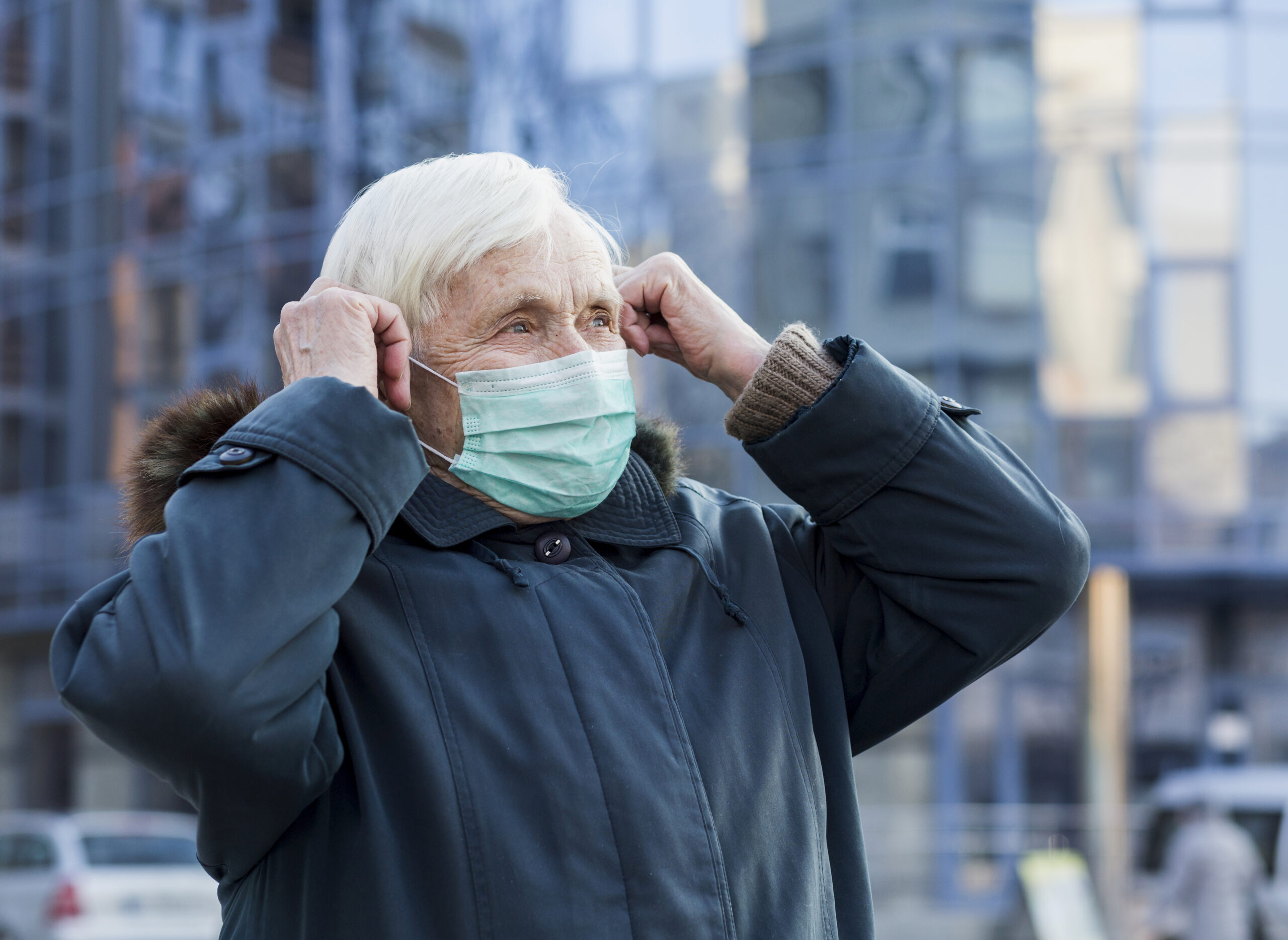Why Flu Shots Are Vital for Seniors This Winter
Did you know that flu-related complications increase significantly with age? This winter, seniors have a crucial decision to make—one that could safeguard their health amidst the flu season’s peak. This article delves into why flu vaccinations are non-negotiable for those in independent living communities, especially given the heightened risks faced by older adults. We’ll dismantle the myths that deter many from the flu shot, show how it fits within the health guidelines set forth by the Internal Revenue Service, and outline the benefits, including how to seamlessly find an assisted living facility in Gilbertsville, assisted living services in New Hampshire, or rehabilitation services in Philadelphia that can assist with vaccination. Navigating this flu season, let our expert insights arm you with the knowledge and resources necessary to make informed health decisions.
Essential Key Takeaways on the Importance of Flu Shots for Seniors
- Flu shots are crucial for seniors to prevent severe health complications and hospitalizations
- Vaccinations support communal immunity in senior living facilities, protecting both residents and staff
- Early flu shots ensure optimal protection for seniors before virus circulation peaks in the community
- Advocacy and discussion about flu vaccinations can bolster immunization rates in elderly communities
- Healthy habits and hygiene practices complement flu shots in strengthening seniors’ immune defenses
Understand the Importance of Flu Shots for Seniors
As winter approaches, the significance of flu shots for individuals in senior housing near me becomes increasingly stark. Older adults face distinctive challenges when it comes to the flu, which can have severe impacts on their health. The risks linked with avoiding the flu vaccine include the heightened potential for complications and the strain it puts on emergency management in long-term care facilities. This Healthy Aging Insights section will elucidate how the flu affects older adults and the inherent risks of foregoing vaccination, emphasizing the role of assistive technology and assisted living memory care in preventative health strategies.
Recognize How the Flu Impacts Older Adults Differently
In states like Iowa and Vermont, seniors receiving nursing care are at a higher susceptibility to the flu due to weakened immune systems. It is critical for facilities providing assistance with meals and hygiene to prioritize influenza vaccination, as these are communal settings where viruses can spread rapidly. A flu shot can make a substantial difference in safeguarding residents’ health and curbing the transmission of the virus.
Moreover, when older adults contract the flu, they are at an increased risk of serious health complications, which can lead to hospitalizations. Ensuring that those in assisted living environments receive their annual flu shot not only promotes better personal health but also lessens the overall strain on healthcare services during the flu season. Vaccination is a straightforward step that can have significant benefits for the collective well-being of senior communities.
Identify the Risks of Forgoing the Flu Vaccine
Within senior living communities, the decision to forgo a flu shot can lead to detrimental outcomes, especially for veterans and others with compromised health. In states like Wyoming, where isolated populations may find it difficult to access prompt medical care, the absence of vaccination increases the risk of severe flu outbreaks. For residents in nursing homes or those enjoying independent living near me, the flu can escalate quickly, necessitating hospitalization, and may negatively influence recovery rates.
Furthermore, avoiding flu vaccination doesn’t merely affect the individual in a nursing home; it undermines the collective immunity of the community. This poses a substantial threat not only to the health of fellow residents but also to the staff who play a vital role in maintaining the operations of senior living facilities. The ripple effect can strain local healthcare resources, underscoring the importance of the flu vaccine as a primary defense against widespread illness.
Learn About the Benefits of Flu Vaccination
Understanding the benefits of flu vaccination can significantly protect the health of seniors, particularly as colder months loom. Find out how flu shots act as a shield for senior health, particularly in Wisconsin and New Mexico where the elderly are vulnerable to the harsh winters. Vaccinations not only reduce the chances of severe illness but also ease the burden on healthcare providers, from the family physician to specialists in palliative care. This section will detail the protective advantages of the flu vaccine and its role in maintaining robust health against potential complications.
Find Out How Flu Shots Protect Senior Health
Flu shots serve as a crucial medical safeguard for seniors, especially in cities like Minneapolis where the winter chill can exacerbate health risks. Within the settings of independent living and assisted facilities, vaccinations reduce the incidence of flu-related complications, which can be severe for those with pre-existing conditions such as cancer. Ensuring access to flu vaccines through insurance coverage or on-site clinics significantly bolsters the well-being of these vulnerable populations.
In addition to lowering the chances of contracting the flu, vaccination aids in mitigating the severity of the illness if it does occur, thus lessening the need for extensive medical care. This preventative measure is particularly beneficial for seniors who may not have the physical resilience to fight off infections easily, providing them with an added layer of protection that supports their health and independence in assisted living environments.
See How Vaccines Lower the Chances of Severe Illness
Flu vaccinations are a fundamental component of seasonal healthcare, particularly for seniors who benefit from a decreased risk of serious illness. In environments such as assisted living facilities in Dallas, where occupational therapy, nutrition, and housekeeping are integral to resident care, preventing the flu can minimize complaints and improve overall health outcomes. By strengthening immune defenses, the vaccine also reduces the necessity for medical interventions.
Implementing a robust vaccination program is instrumental in shielding seniors against the flu, especially for those with chronic health issues. Proactive measures, including flu shots, play a critical role in maintaining the quality of life by lowering hospitalization rates, easing the burden on healthcare systems, and supporting crucial services such as housekeeping and nutrition, which contribute to the holistic health paradigm of communities like those in Dallas.
Debunk Common Myths About Flu Vaccination
Amidst the chill of the winter season, seniors residing in places like Nevada and Michigan, and those receiving home care, face crucial decisions about their health. Flu vaccination emerges as a key factor in maintaining quality of life, but hesitations often persist fueled by prevalent myths. This section confronts common misconceptions about the safety and effectiveness of flu shots for the elderly, providing insights that weigh the minimal risks against the considerable benefits. Addressing these concerns is vital to informed healthcare choices and can influence the allocation of healthcare budgets effectively.
Address Misconceptions About Flu Shot Safety
Among the elderly, misconceptions regarding the safety of flu shots can deter many from getting vaccinated, potentially jeopardizing their health. Expert management of this misinformation is necessary, as healthcare professionals confirm that flu vaccines are tailored to be safe for seniors, carrying a much lower risk than the actual disease. Addressing such safety concerns is key to encouraging widespread vaccination, ultimately supporting the health of the senior population and minimizing healthcare costs that can affect life insurance and healthcare fees.
Furthermore, the notion that flu shots could compromise the finances of seniors, akin to the uncertainties surrounding reverse mortgages, is unfounded. In truth, most insurance plans, including Medicare, cover the cost of the flu vaccine, ensuring that no additional fee burdens individuals. The peace of mind brought by vaccination aligns with the protective intent of hospice care, adding a layer of defense to a senior’s health without imposing financial strain.
Understand Vaccine Effectiveness in Seniors
Understanding the effectiveness of flu vaccines in seniors is essential, particularly in locations such as Colorado where the population may face harsh winter weather. Studies have highlighted that while aging immune systems respond differently, vaccinations remain a critical tool in preventing the spread of disease. Seniors in Denver, for instance, benefit from reduced hospitalization rates, a testament to the vaccine’s role in mitigating severe health outcomes.
During flu season, it’s not uncommon for seniors to question the efficacy of flu shots. Yet, the evidence is clear: flu vaccination leads to fewer instances of exacerbation of chronic illnesses, which is vital for maintaining one’s lifestyle, whether enjoying the local cuisine or staying active in the community. By promoting vaccination, websites, and healthcare providers dispel myths and reinforce the message that flu shots are an important aspect of health management for seniors.
Schedule Your Flu Shot Early This Winter
With the arrival of winter, seniors in vibrant senior living communities should prioritize receiving flu shots promptly. In North Dakota and beyond, determining the optimal time for vaccination is critical for optimal protection against the flu. Locating clinics that cater to the health needs of seniors, including those in senior living residences, becomes increasingly essential. Upcoming sections will guide readers on the best timing for flu vaccinations and where to find accessible clinics, as well as vital information for maintaining the leadership role senior living communities play in protecting their residents.
Learn When to Get Vaccinated for Optimal Protection
Securing early vaccination offers the elderly the best shield against the flu, with experts advising that shots be administered before the onset of the winter season. For seniors residing in Maryland, or choosing senior independent living, timing is crucial; receiving a flu shot early on ensures that their immune system has enough time to build up adequate protection before flu viruses begin circulating widely. Health insurance typically covers the cost of flu vaccines, making this a wise and accessible health decision for older adults in long-term care facilities near me.
In the United Kingdom, where flu season can begin as early as October, health authorities recommend that seniors get their flu shots by the end of September. This guidance applies equally to those in the United States and serves as a practical example for seniors to follow. By scheduling vaccinations promptly, residents in long-term care setups, as well as those enjoying senior independent living, can maintain robust health and peace of mind throughout the winter months.
Find Local Clinics Offering Flu Shots to Seniors
In Pennsylvania, community health centers and pharmacies have streamlined the process of administering flu shots to cater to the needs of seniors, especially those residing in independent living facilities. These locations are often easily accessible and may offer additional services like laundry and medication management, ensuring seniors have a one-stop solution for their wellness needs.
Seniors in independent living environments are encouraged to contact their local clinics to schedule a flu shot, as these centers possess an understanding of the unique health considerations for older adults. By taking this step, individuals ensure they are protected during flu season, contributing positively to both their health and the well-being of their surrounding community.
Boost Immunity With Healthy Lifestyle Choices
Amid the brisk chill of winter in cities from Boston to South Dakota, strengthening the immune system becomes pivotal for seniors. Adopting healthy habits not only bolsters their defenses against the flu but also plays a crucial role in preventing its spread. This subsection brings to light key strategies seniors can embrace to enhance their immune function. It will touch upon practices that range from nourishing dietary choices to diligent hygiene maintenance, all of which are vital in conjunction with health care measures like flu shots.
Adopt Habits to Strengthen Your Immune System
For seniors residing in Montgomery PA, reinforcing their immune system is essential, particularly during the colder months when the flu is rampant. Assisted living facilities can serve as a valuable resource, providing not only shelter but also routine that promotes wellness. Regular physical activity and a diet rich in nutrients have been shown to support memory and overall health, which are integral to individuals’ living experiences and their ability to stave off illness.
Simple adjustments in daily habits can make a marked difference in a senior’s immune response. Ensuring sufficient sleep, managing stress effectively, and remaining hydrated are practices encouraged by healthcare providers within assisted living communities. These behaviors synergistically fortify the body’s defenses, creating a more resilient shield against the seasonal flu and other potential infections.
Practice Good Hygiene to Prevent Flu Spread
In Baltimore, as in many cities, the topic of flu prevention is taken seriously by ombudsmen advocating for elderly care. These advocates emphasize that diligent handwashing and avoiding close contact with those who are sick are simple yet effective practices that dramatically reduce the spread of influenza. For the elderly in Virginia and Alabama, where community living is common, these hygiene practices are particularly critical in maintaining the health of the entire residential cohort.
Furthermore, the use of alcohol-based hand sanitizers and the routine cleaning of frequently touched surfaces have also been championed by experts in elderly care. Such measures are instrumental, especially in communal areas and can prevent the transmission of the virus among seniors. This approach to hygiene complements the protective effects of flu shots, creating a comprehensive defense strategy against the flu season’s challenges.
Encourage Loved Ones to Get Vaccinated
When considering flu shots for seniors, discussing the benefits with family and friends becomes a vital step. Those in North Carolina, where therapy and medication are part of routine care for the elderly, can be advocates for vaccination within the community. This simple act of sharing can go a long way in protecting a parent or loved one, reducing hospital visits and the potential financial burden of healthcare payments. In the following sections, the role of flu shot advocacy and the ripple effect on community health will be explored, showcasing the importance of these discussions in preventing illness.
Share the Benefits of Flu Shots With Family and Friends
Within senior communities, sharing information about the importance of flu vaccinations is crucial. In Tennessee, where changes in health policy may influence access to immunizations, informing elderly loved ones of the protective benefits can preempt complications, especially for those with conditions like dementia. Through conversations, family members can advocate for the uptake of flu shots, ensuring that individuals in residential care receive the defense they need against the winter’s viral threats.
In dense urban areas such as Los Angeles, the close proximity of residents in senior living facilities amplifies the need for flu vaccinations. By communicating the health advantages to friends and family, individuals can foster an environment where flu shots are deemed essential, particularly in dementia care where preventing illness is part of effective management. Advocacy by relatives reinforces the importance of flu vaccinations, playing a pivotal role in safeguarding the well-being of seniors in residential care settings.
Promote Community Health Through Vaccination Advocacy
Advocacy for flu vaccination by caregivers enhances the overall health of retirement home communities. When trusted figures in senior care emphasize the significance of flu shots, it provides a sense of security to residents, reassuring them about the proactive steps being taken to protect their well-being. This influence extends beyond personal health, fostering a safer environment where the spread of influenza is minimized, benefiting everyone from the residents to the staff.
A concierge or caregiver in a retirement home has the unique opportunity to encourage flu vaccination, thus directly contributing to communal health. By facilitating discussions and offering information on the availability and benefits of flu shots, they play a crucial role in alleviating concerns, particularly about the safety and accessibility of vaccination sites, whether it’s in the community lounge or a nearby clinic with suitable bathroom facilities for the elderly. As a result, immunization rates rise, ensuring a winter season with fewer health complications and greater peace of mind for all.







